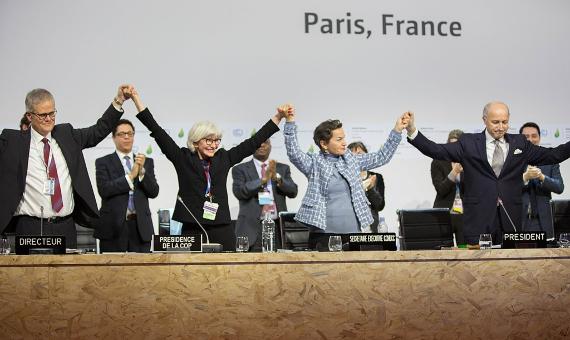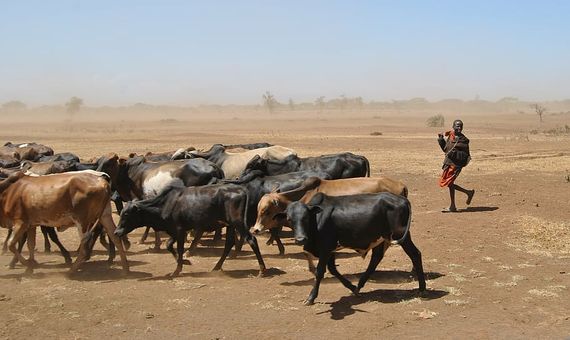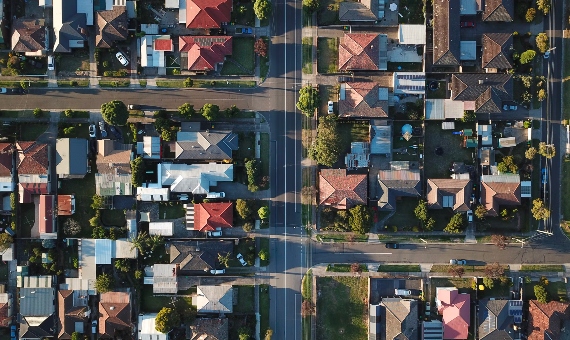Ricardo Garcia Herrera, Professor of Atmospheric Physics at the Complutense University of Madrid and the Institute of Geosciences of the CSIC-UCM, and one of the leading experts on heat waves in Spain, talks to meteorologist and broadcaster Isabel Moreno about the extreme weather phenomena that await us in the future.
What do we consider a heat wave and what causes us to have heat waves in Spain, for example?
A heat wave is a prolonged period of 3 to 5 days during which the temperature is abnormally high.
The abnormally high temperature is important because it is related to how different the climate is with respect to the situation in a certain place. For example, in a city like Seville, temperatures of 38 or 39 degrees Celsius are a relatively common situation in the summer. However, having 38 or 39 degrees in a city like La Coruña would be considered a severe heat wave. Or like what happened in the United Kingdom, where they experienced temperatures of 40 degrees Celsius.
What is most important about a heat wave is the anomaly, the difference with respect to the usual weather. If that is maintained between 3 and 5 days we say we are experiencing a heat wave.

In Spain, heat waves are usually caused by a combination of three main effects:
- We have a fixed anticyclone over the peninsula. If we have an anticyclone, the air weighs a lot and the air is compressed and warms up.
- At the same time there is an inflow of Saharan or African air, which is usually much warmer.
- We have greater sunshine or solar radiation. This is happening a lot recently in June and July because they are the longest days of the year.
If we add these three factors together, we find ourselves facing heat waves.
And we are observing an increase in heat waves in Spain in the last few decades…
Yes, we are observing it because, on the one hand, with the global greenhouse effect, the air is retaining more temperature and on the other hand, studies that we have recently done show that there is a positive trend to the inflow of this African air.
As a result, weather situations that previously resulted in high temperatures now result in very high temperatures.
When you started studying heat waves a few years ago, did you expect that we would be able to see the reality we are currently witnessing in 2022?
Ten or 15 years ago the models were saying that heat waves were going to be more frequent and more intense, but I was hopeful that it would happen later in this century. However, what we are seeing is that global warming is accelerating. I didn’t think we were going to experience this so soon.
What worries you most about seeing it so soon?
What worries me is that we are still at a large level of warming over the pre-industrial period of 1.2 degrees. The civilization agreement that we have reached, the Paris Agreement, is to hit 1.5 degrees, which unfortunately we are not going to be able to reach, but rather 2 degrees.
Between the 1.2 degrees that we are at now and 2 degrees, which is the hope that we as humanity have placed in limiting warming, there is still much more room for this type of phenomena to intensify and become more frequent. That is what is worrying, not so much this heat wave but this heat wave is a preview of what is to come.

What are the impacts heat waves have on society, aside from the fact that we will be very hot?
They have an impact on mortality. There is a group of people, mainly women over 65 years of age who have previous conditions, who are more susceptible.
In general, there is a deterioration in air quality, since heat waves in Spain are usually also associated with the inflow of African air. Moreover, heat waves produce more surface ozone, which is the ozone pollutant, and that also means more health problems.
Droughts are also increasing. In Spain, droughts are on the rise, but not so much because it is raining less, but because it is warmer and this causes water to evaporate much earlier. Right now, for example, water content in the soil is practically zero.
And that, in addition, intensifies the heat, because that heat is not used to evaporate the water in the soil….
And it makes us more susceptible to the wildfires we are seeing. Forest fires spread faster and affect more forest mass because there is no moisture in the soil. This means that next year that forest mass that is lost has less capacity to retain moisture, so we have a negative feedback loop.

And do you think society is really aware of the impact heat waves have on their day-to-day lives?
Not yet. One thing is to have the information and another thing is to internalize what it means and change behaviors. We live in a society where it is very difficult to change the factors that affect the occurrence of heat, which is the emission of greenhouse gases. We live in larger cities where commuting to work involves a significant use of energy, the use we make of heating or air conditioning, … all these kinds of things are very socially conditioned and we need to raise greater awareness.
Do you think we are preparing for what the future holds?
In a society as complex as ours, we show signs of both one thing and the opposite.
In Spain, for example, we have a climate change law that is one of the most advanced in Europe. We are making progress in this area of regulation, but it is more complicated to translate this into changes in social behavior. And that is not only information, it is also internalization. After this summer, most Spaniards will surely not see climate change issues as they did before.
Moreover, we have intense, short-term crises such as COVID or the war in Ukraine that distract us from achieving very long-term climate objectives, as we will not see the results of the measures we put in place now for another 30 years.

We, as scientists, must continue to provide this information and reach out to society using all means possible, and we must also maintain the policy lines that have been established in Spain.
And how would you convey, without succumbing to a sense of hopelessness, that what we are experiencing this 2022 is likely to be the most normal thing we will experience in the coming decades?
I believe it is not good to try to convey an optimistic message on an issue that requires so much effort from society as a whole. Problems must be faced head on and this is a problem that we are finding difficult to face because it affects the core of our society, which is basically the consumption of hydrocarbons.
We must prepare ourselves to face this summer and the coming ones and, collectively, see what we can do so that it does not affect the weakest, because the problem with this type of thing is that there are always inequalities in terms of the impacts.
I believe it is not so much a hope that this is going to pass but rather that we should prepare ourselves socially, politically and economically so that the impacts do not fall on the most vulnerable people.
Comments on this publication